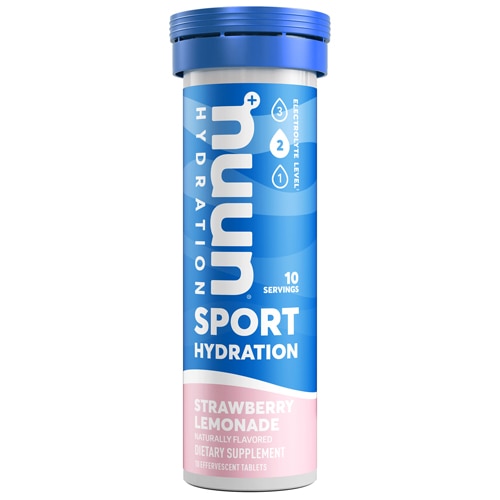Some people wish for an IV of straight coffee, while others can barely tolerate a few sips. Whether you jive with java is debatable, but caffeine itself is not. There’s no denying the power of the perk, which is why many athletes – professional and recreational – have gotten in the habit of consuming caffeinated pre-workout supplements. And maybe there’s good reason for that…
If you’re trying to make gains and work toward a fitness goal, pre-workouts may help you get there. But they aren’t the magic pill. There are pros and cons to taking stimulating supplements before you exercise:
PROS of pre-workouts
1. You’re getting more than just caffeine
A pre-workout formula can be pure caffeine. However, most contain a combination of nutrients, such as creatine monohydrate, amino acids, B vitamins and electrolytes. These are all usual suspects found in sports nutrition, but it’s helpful (and convenient!) to have them all in one supplement. For instance, your active body needs amino acids to help build and repair muscles. Similarly, it requires a balance in electrolytes as it loses them through sweat and dehydrating stimulants.
Note: Pre-workouts are stimulants by definition, which means they can create a diuretic effect that leads to dehydration. When using pre-workout supplements, you may need to take in additional water and electrolytes to maintain a balance.
2. You’re alert
Similar to how caffeine helps you push through a tedious task at work, it can help you remain alert and focused in the gym. In fact, a 2012 study published in Nutrition & Metabolism proved that consuming a pre-workout supplement “significantly improved agility choice reaction performance…while increasing perceived energy and reducing subjective fatigue.” In layman’s terms this means the body is more alert so you can concentrate on the task at hand. In addition to taking a supplement, these tips can help you stay focused during a workout in order to get the most out of it and reduce your risk for injury.
3. You’re powerful without oxygen
Athletes who perform all-out efforts for short periods of time (several seconds up to a minute) utilize more anaerobic energy systems – those that don’t require oxygen. By improving your anaerobic peak power, you train your body to perform at higher and higher intensities. What does that have to do with pre-workouts? A June 2016 study in Journal of the International Society of Sports Nutrition found that when moderately trained males consumed a pre-workout supplement 20 minutes prior to exercise, it led to “significant improvements in anaerobic peak power” compared to the placebo group. If you want to make physical progress, find an energizing formula that complements your goals.
CONS of pre-workouts
1. Dangerous and artificial ingredients
Watch out for artificial colors, flavors and sweeteners. They come disguised in words such as: red dye #40, caramel color and sucralose. More importantly, though, are dangerously stimulating ingredients like yohimbe, synephrine (or its cousin ephedrine) and dimethylamylamine (DMAA for short, or referred to as geranium extract). DMAA was banned for use in dietary supplements in 2013 after numerous reports of illness and death. Unfortunately, these substances can still be found online, which is why it’s important to shop trusted retailers for all your sports nutrition needs.
2. Overstimulation
Getting the jitters is not uncommon for pre-workout newbies. Caffeine and other popular pre-workout add-ins stimulate the central nervous system. But there comes a point when your nervous system can’t use all the energy you’ve given it. This creates a shaky, tingly sensation that many people do not enjoy. In the process, your heart rate will also increase quite rapidly. This can be extremely risky for anyone with a pre-existing heart condition or vulnerability to anxiety or panic attacks. If you’re sensitive to caffeine or other stimulants, pre-workouts may not be the right fit for you. If you’re not sure, start with only half the recommended serving of a pre-workout and gradually build from there if your body tells you it’s okay.
3. Dehydration
As mentioned above, pre-workouts can act as diuretics. Just like a cup of coffee, the stimulants in your pre-workout formula can signal the kidneys to release water (aka make you go to the bathroom more frequently). Curb the risk of dehydration with electrolytes and by drinking more water in general.
Tips for taking pre-workouts
Time it right: You need 20-30 minutes to digest and absorb the nutrients provided by your pre-workout. That being said, taking your powder supplement too early can be ineffective, as well. Don’t let two hours go by between gulping down a pre-workout and starting to exercise. Also, avoid pre-workouts too late in the day, as they may disrupt your ability to fall asleep and/or stay asleep.
Read labels carefully: As with any type of fuel, know what you’re putting in your body. Look for artificial and banned ingredients, first and foremost. Next, find out how much caffeine is provided per serving. If the label doesn’t say, place a call to the manufacturer to find out.
Monitor caffeine intake: Determining the pre-workout's caffeine content is step one. This can help you gauge how much caffeine you consume over a day’s time. The Mayo Clinic suggests up to 400 mg of caffeine per day is a safe amount for healthy adults. However, the average formula contains 200 mg or more. If you plan on drinking a cup or two of coffee throughout the day, you may want a pre-workout with less caffeine -- closer to the 100-mg mark.




